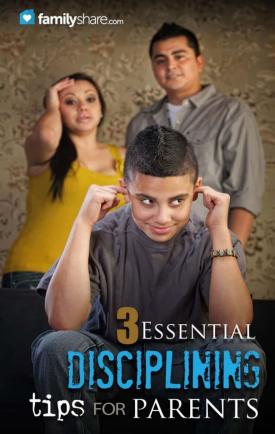
It's a common request among parents: Why don't children come with instruction books? Lots of parents just don't know how to handle certain situations. Disciplining is one of the most common situations of which parents feel most uncertain. If you handle it too hard, it could be damaging for your child. If you handle it too soft, it could also be damaging. So how do you make sure you're disciplining your child in a way that's just right?
As a Marriage and Family Therapist counselor and owner of The Marriage and Family Clinic in Denver, CO one of the most common reasons I see families is because of difficulties surrounding disciplining. Parents (and children) often worry that they're being too hot or too cold with their children. To help you decide whether you're being too hot or too cold, here are a few essential tips to follow. Like Goldilocks, you can make sure you're picking the one that's just right.
Parenting Tips for Disciplining your Children
1.
Make sure the time fits the crim
e. There's a reason people don't get life sentences just for breaking the speed limit. When your child does something wrong, find a consequence that's fitting for the error they made. Taking away their cell phone every time they do the slightest thing wrong makes them resentful and teaches them that you're unfair. Give little punishments for little offenses (such as being slightly late past curfew, or lying about getting their homework done) and big punishments for big offenses (such as being caught with drugs, or taking your car without telling you).
2.
Don't discipline out of anger
.This one's hard. When children do things that need disciplining, it's common for parents to get angry. In fact, it's OK for parents to get angry about it. But when you discipline a child just because you're angry, it usually means that you make rash decisions that you later regret. Take a timeout for yourself until you're calm enough to handle the situation appropriately. There's no harm in making your child wait a couple hours until he gets his punishment.
3.
Let natural consequences be the only consequences as much as possible
. Too often, parents think they have to intervene in everything that happens. Many times, they don't. For example, if your child leaves her bike in the driveway and it gets ran over, there's no need to ground her for it because her bike is already broken. It's a lesson learned that you, as a parent, didn't have to teach her.
Parents have a lot to do. They have to kiss owies better, making sure homework is done, chauffeur children around and be a listening ear when needed, just to name a few. Disciplining is one of the last things parents want to do. Yet, these tips will help make sure that when you have to do it, you're doing it right, and your children are learning what they need to - without being too hard or too soft.

